REPOST- Live online workshop with Anna Jordan on redrafting
During this public health emergency, the safety and wellbeing of our staff, artists, audiences and families comes first. We are exploring ways in which we…

We hope that this site is a robust and useful (and free!) tool for anyone interested in writing for the stage. As we navigate these changing times, we need to recognise and bring compassion to the journey we are on and the challenges we face. At the Bruntwood Prize for Playwriting, our endeavour is that this website becomes so much more than the biennial award, that we are able to find ways to support anyone and everyone who is interested in writing for performance to explore their creativity
Bruntwood Prize winning playwright Anna Jordan has been sharing survival tips for writers on her twitter, and has generously let us archive them here
Being going through a tough time of late & work, like everything, has been so hard. There are a few tricks & tools I’ve held onto for dear life which have helped get me through & now I’m (hopefully) coming out the other side I thought I’d share them #WritersSurvivalTips…
#WritersSurvivalTips 1. Here’s an easy one. At the end of the working day (working hour? 20mins) I’ve learnt to leave myself a clear task to start the next session. Might be a warm-up dialogue exchange, a stack of index cards to do some beats or a timeline also means my subconscious brain is still working and prepping stuff for the next writing session even if my thinking brain is switched off.
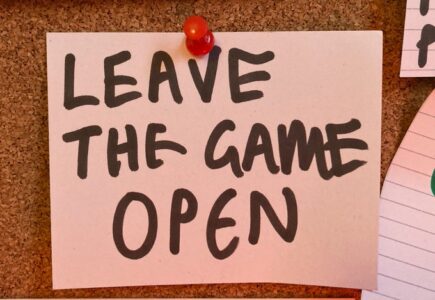
#WritersSurvivalTips 2 find a Writer Pal to hold you accountable. If I’m not strict with myself I’ll work with big themes & ideas & leave the actual WRITING bit to the last min. Commit to an amount of writing you will DEFO complete & tell a writer pal when you’ll send it @jonbrittain has been my legend this week. Sent him a full page of prose a day. Some of it drivel. They don’t need to comment, or even read, it’s just so they can hold you accountable. & have writer friends – It helps! Come to #CreativeCheckin to meet more writers
This one is simple but game-changing (in life & work). #WritersSurvivalTips 3 Be an observer in your life. You don’t have to sit in discomfort or stress. I’ve been trying to step to the side & just observe. I am not my thoughts. It helps. Thank you @yogawithadriene for this tip!
#WritersSurvivalTips 4 – this one’s wild. If you’re working on something based on a real event / person / time in history -when you’re really deep into it take time to go back to the most basic source material. The wiki page. The original article. The “for dummies” website. Read the 1st few hits on google. It’s amazing how you can process this material in a different way once you’re deep in a project rather than the start. It can be a great reminder of what you love about it if you’ve lost that. It can help ground you if you’ve gone off on. a bit of a tangent & now you’re an expert it’s exciting how you see much more in it. I’ve done this for my last couple of projects & it’s incredibly helpful. Same for returning to original pitch docs. Try it. :)
#Writerssurvivaltips 5 light a candle even when it’s daytime.
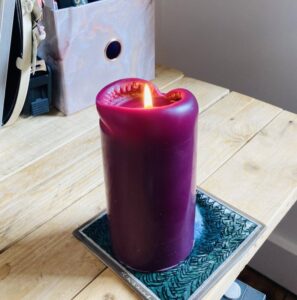
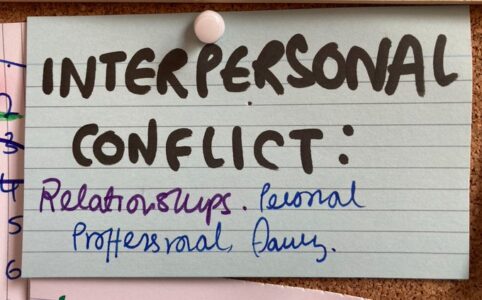
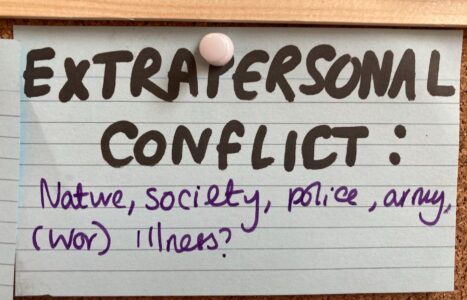
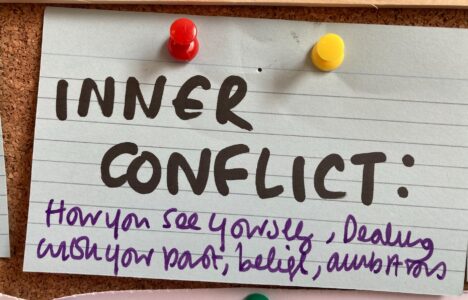
…. I like to think I am always thinking instinctively and intuitively and from my characters POV but sometimes you need to be a bit more logistical / thorough about things. They’re from Stephen Jeffreys Playwriting
#WritersSurvivalTips 7 – I do this exercise from Kate Clanchy’s wonderful book #HowToGrowYourOwnPoem for all my key characters now. You can write your character’s version of Table by Edip Cansever. Or write your own. You can discover a lot. https://twitter.com/KateClanchy1/status/1373606004353593350
#WritersSurvivalTips 8 – this is my favourite. THIS IS MY STORY. For each character I do a short synopsis of the story from their point of view – starting with “My name is NAME and this is my story”. I’ve always done this for theatre as it makes sure each character is rounded, has a full journey, has wants and dreams of their own and is not just there to serve other characters – but for telly it’s a game changer as it can unlock loads and loads of STORY. :) :)
#WritersSurvivalTips 9 – I’m spending a lot more time on my own now & I find my negative chatterbox voice is on overdrive. (“Where’s the conflict in this scene you twat?” “Oh, a great big fuck off pie, good choice:”) Sometimes I just say to myself WHAT IF IT WAS OK?….What if it was OK that I need to work the scene a bit before I find the conflict? What if it was OK to eat a great big fuck off pie for dinner? What if it was OK to rest / eat / cry / work at a glacial rate / not change pants? What if it’s all just OK?
#WritersSurvivalTips 10 – bit complex this one. Everything is Work and Nothing Is Work. Part 1- Everything is work. You are not only working when you are typing words at your laptop. Work includes thinking & dreaming, staring into space, research,watching films, reading books anything that informs & helps grow the world, characters & story of your project. If you keep a diary/log of the different types of work you do on a project you might stop thinking your so lazy because you didn’t do a full five hours at the laptop….
Part 2 of this: Nothing is Work – Do stuff that doesn’t feel like work! Scribble in gorgeous notebooks with a sexy pen, on index cards in different colours. Walk & talk, use your voice recorder or dictation app. Move from your desk. Stand. Do freewriting, Pomodoro…Change it up.
#WritersSurvivalTips 11 – last one for a bit. In these uncertain times, particularly while theatre has been dark, I think it makes sense to think about yourself as a storyteller, rather than a playwright or screenwriter. What’s at the heart of all good theatre/telly is story even though it’s told in v different ways often. We can can focus on telling great stories with glorious flawed characters and perhaps the medium comes later. Stay open and adaptable. I try to think about “my story” rather than “my play” or “my film”. I know that the demands are v different but the truth is complex rich characters in interesting situations & relationships are the foundation of every good story. We’re still in flux – I’ve heard of lots of people repurposing theatre for short film or tv – it makes sense….
A little PS for this. I’m often asked about writing for theatre and TV & how they are different or how to make the transition. It’s a big question with a complex answer but for those playwrights who are keen to write for telly I will say this: Don’t feel as playwrights you have to change what’s at the heart of your work or conform to some sort of TV blueprint. There’s huge interest in the work of playwrights in TV, the inventiveness & playful thinking we bring, & great execs & editors will be able to guide you to make work translate. You don’t have to come to the table with it all worked out. Just think about the story.
Keep an eye on twitter.com/WAPtheatre for more, and for the forthcoming Creative Check in sessions- Coming up!
Fri, 25 June 2021
11:00 – 12:00 BST
The last year and a half has been A LOT. Especially for creatives. So let’s check in with each other!
Staying connected in a crisis is hard. The #CreativeSurvivalKit team invite you to join a drop in chat session led by director Nick Bagnall. Nick has worked extensively in most major theatres in the country. He was formerly joint Artistic Director of The Milton Rooms and Associate Director of the Liverpool Everyman & Playhouse between 2014 and 2019. This is a session for all theatremakers (this absolutely includes actors!) to help you remember that even in these extraordinary times, you are not alone.
There will be more sessions soon – keep an eye on twitter.com/WAPtheatre for info.
The wonderful Jane Christie will be managing these Zoom sessions.
Picture credit: Kevin Murphy.